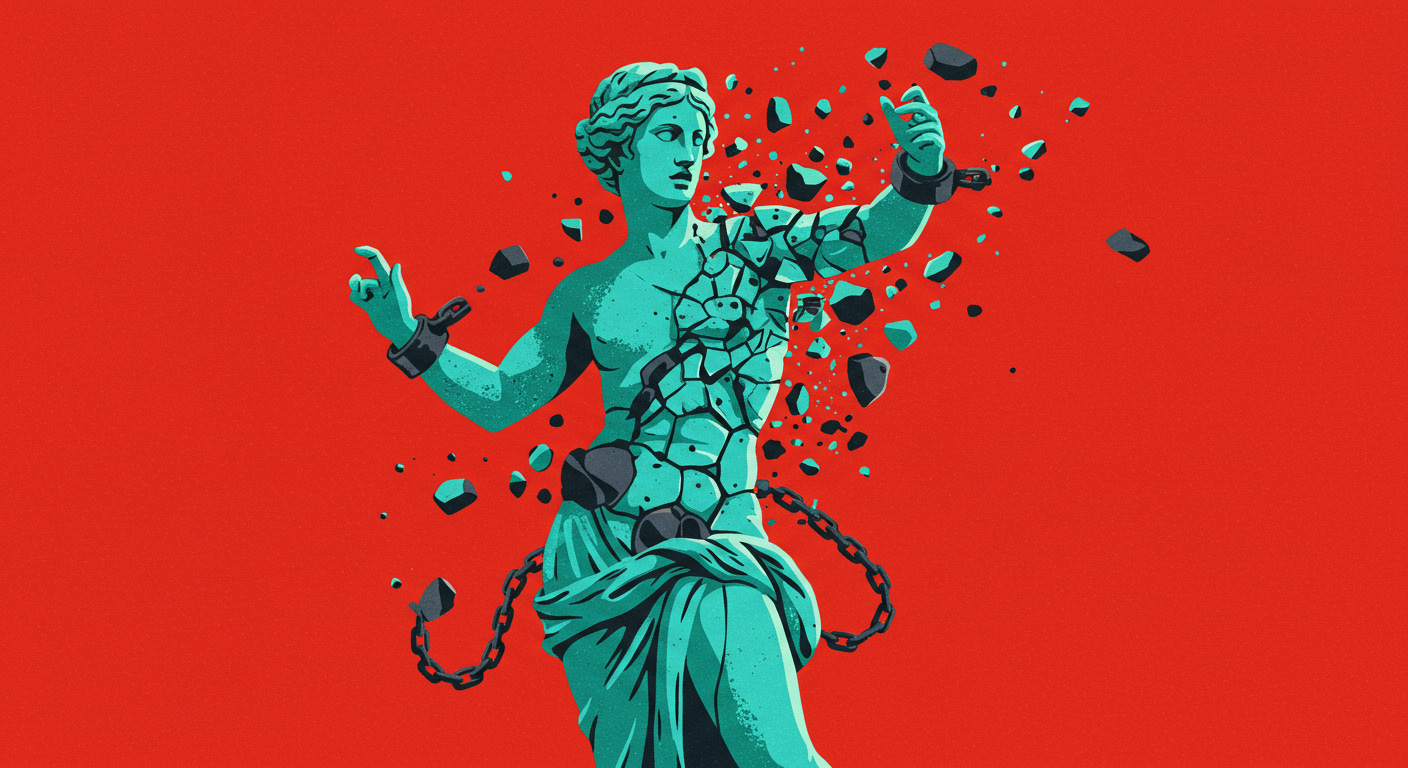I Died to Be Reborn: The Power of Rising from the Abyss
On Rebirth
Being born is not a choice. It is the given condition of life—we come into the world by an event we did not will. But rebirth is different. Rebirth is earned. It is the response of the human spirit to devastation. Whether through illness, heartbreak, humiliation, professional collapse, or the slow disintegration of one’s identity, life often breaks us apart. These moments are not mere events. They leave stains. They shape how we see ourselves, others, and what lies ahead.
And the great tragedy is that when we are at our lowest, we begin to think that this broken version of ourselves is our final form. We begin to live as if life were over—while our heart still beats.
The deepest wound left by failure or trauma is not the event itself, but the belief that it is destined to repeat, that our pain is eternal. We internalize suffering as fate, not as accident. In doing so, we unconsciously build a prison of emotional paralysis. The body moves, speaks, performs duties—but inside, something essential dies. We no longer dream. We no longer believe. We stop expecting better because we start to think we don’t deserve better.
This is the graveyard of rebirth—the place where millions linger, silently longing to feel alive again but doubting it is possible.
Yet it is possible. It begins in the smallest spark.
As Nietzsche so vividly described in The Gay Science, after walking alone through a metaphorical winter of despair, a moment comes: “And then suddenly something stirs in me: hope, laughter, a budding courage. And I say: ‘Let us learn to love again. Let us learn to live again.’”
Rebirth is not a return to the past. It is a radical emergence into something new. It comes not by denying what we suffered, but by confronting it, surviving it, and allowing it to become the soil from which new strength grows. Nietzsche’s philosophy speaks directly to this moment of transformation—not as naïve optimism, but as the defiant will to live even after encountering the abyss.
Dostoevsky, too, captures this in Crime and Punishment. Raskolnikov, who has descended into guilt, punishment, and spiritual emptiness, eventually reaches a turning point. Dostoevsky writes:
“But here begins a new account, the story of a man's gradual renewal, his gradual rebirth, his gradual transition from one world to another...”
The process is slow. It is not theatrical. There is no sudden miracle. But what matters is that he begins again. The idea of “gradual transition” is crucial—rebirth does not erase the past in one gesture; rather, it repositions it. From this new angle, our wounds become reminders of survival, not of weakness.
And yet, true and sustainable rebirth requires more than just surviving the past. It requires shedding it. The residue of past weakness, past humiliation, past failure must be deliberately erased—not forgotten, but no longer allowed to dictate the future. One must develop a conscious refusal to be defined by past defeats. The act of rebirth must involve breaking the inner chains that keep us tied to the version of ourselves that collapsed. This includes letting go of toxic guilt, self-blame, and limiting narratives. To be reborn is not only to start anew, but to destroy the false belief that our lowest moment defines who we are.
When rebirth is real, it ushers in not only healing but also hunger—a hunger to achieve, to shine, to win. It is not passive, quiet acceptance. It is a rebellious, energetic state of becoming. One feels a revived appetite for life, a strong desire to build, to explore, to taste power again—not power over others, but power over one's self, over one’s own destiny. After months or years of feeling broken, such a resurgence of energy feels intoxicating. It becomes a quest—not for perfection, but for victory. For new accomplishments that are no longer shadowed by the past but born in spite of it.
In this renewed state, the world reopens. Doors that seemed shut forever appear within reach. Possibilities multiply. What was once terrifying becomes simply a challenge. The person who has been reborn carries something different in their eyes: a quiet confidence forged in suffering, a new clarity in their voice, a powerful softness. There is a rediscovery of self—not the old self, but a refined, upgraded version, distilled by pain, yet not imprisoned by it. It is a self that knows what it means to feel powerless—and therefore hungers for the strength that now flows through it.
Rebirth is the most human of acts. It is not reserved for heroes or saints. It is available to anyone brave enough to say: “That was not the end of me.” It is the choice to stand in front of your winter, like Nietzsche, and say, “I live, and I live for myself.” It is the willingness to leave behind what no longer serves you, to cut the cord with old pain, and to walk, step by step, toward a new horizon—one where weakness is no longer feared, because it has been endured and overcome.





Beautiful message.
Gotta love Nietzsche